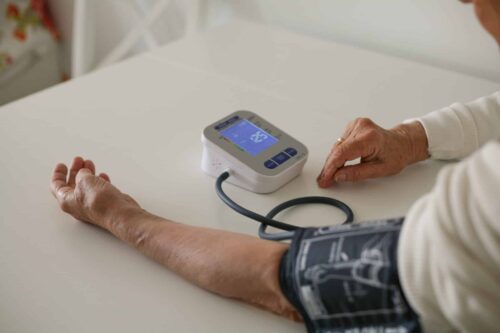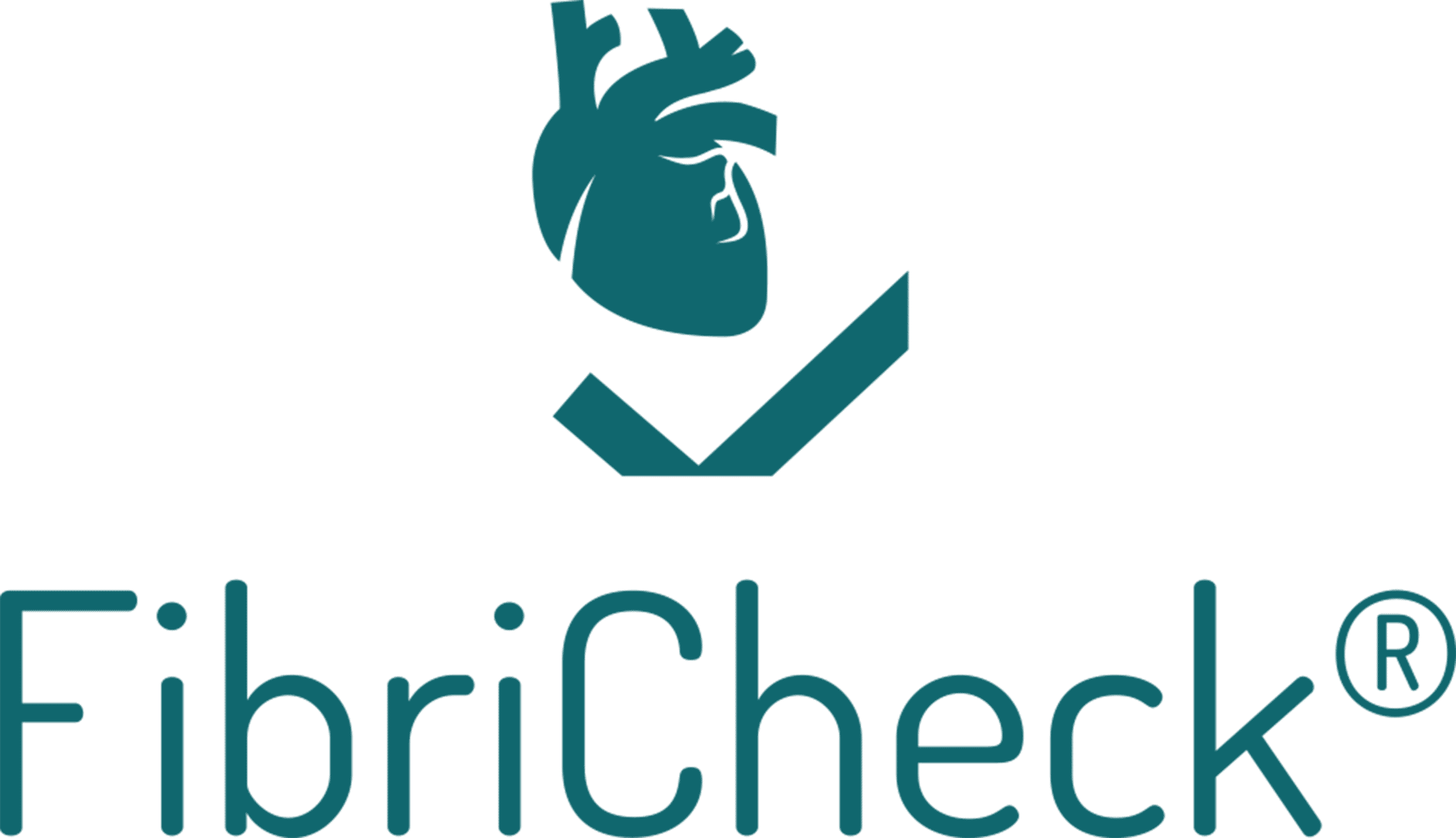Your blood pressure measures the pressure of the blood against the walls of the arteries as the heart is pumping blood throughout the body. This pressure is always measured in millimetres of mercury, which is abbreviated as mmHg. Your blood pressure always consists of two values:
- Systolic pressure: the pressure in your arteries when your heart pushes blood out
- Diastolic pressure: the pressure in your arteries when your heart rests between beats
Your blood pressure can be too high, which is called hypertension. Less common is that your blood pressure is too low, which is known as hypotension. Both of these conditions can have their own causes, consequences and symptoms.
As high blood pressure is much more common and can have serious consequences for your heart health, this article will focus on how you can find out you have high blood pressure, the possible causes that it may have, the risks and what you can do to lower your blood pressure.
When do we speak of high blood pressure?
According to the ESC guidelines, blood pressure can be categorised as follows:
Normal blood pressure: <124 / <79
Elevated blood pressure: 125-134 / 80-84
Mild hypertension: 135-154 / 85-94
Moderate hypertension: 155-174 / 95-104
Severe hypertension: >175 / >105
Classification
Normal blood pressure
Elevated blood pressure, within normal range
Grade 1 hypertension (mild)
Grade 2 hypertension (moderate)
Grade 3 hypertension (severe)
Systolic
<124
125-134
135-154
155-174
>175
Diastolic
<79
80-84
85-94
95-104
>105
What can cause high blood pressure?
High blood pressure can have many causes. It is often related to an unhealthy lifestyle including a lot of stress, smoking, and consuming a lot of caffeine or alcohol. Being overweight and not having enough exercise can increase your blood pressure as well. Other causes of high blood pressure may be increasing age and having a relative with high blood pressure.
How does high blood pressure affect the heart?
It’s important to be aware of your blood pressure, as untreated hypertension puts continuous strain on the blood vessels in the body. The heart, brain, kidneys and eyes may suffer from high blood pressure as well.
The pressure on the walls of the blood vessels can cause damage to your tissues and your heart muscle. This damage can eventually disrupt your heart’s electrical impulses, which can cause atrial fibrillation, a common heart rhythm disorder. Both hypertension and atrial fibrillation increase the risk of stroke drastically. Atrial fibrillation causes 15% of strokes, while 75% of people who experienced a stroke have a high blood pressure.
Hypertension can have a severe impact on the heart. Besides the risk of stroke, people with hypertension also have a higher risk of suffering from coronary heart disease, heart attacks, heart failure and aortic aneurysms.
Besides the heart, a high blood pressure may also lead to a number of other serious health conditions such as kidney disease, vascular dementia, hypertensive retinopathy and peripheral arterial disease.
As hypertension can cause many serious health conditions, it’s recommended to measure your blood pressure regularly, especially as hypertension usually doesn’t cause any symptoms.

What can you do about high blood pressure?
There are various ways to do something about high blood pressure. It’s important to get checked by your physician first, to be certain that you have hypertension, and to know what would be the best approach to lower your blood pressure. In order to get your blood pressure back to a healthy value, your physician may prescribe you medicine, give you advice on lifestyle changes or a combination of both.
Maintaining a healthy diet (e.g. the mediterranean diet) is an important factor in getting your blood pressure within the healthy range again. It’s important that your food intake is healthy and balanced, and that you reduce your intake of salt, alcohol and caffeine. If you are a smoker, then it will also be beneficial for your blood pressure to quit smoking. It’s recommended to combine this diet with regular exercise, which will also help to get your blood pressure within the normal range.
When you have hypertension, it’s important to follow up on your blood pressure and to take measurements regularly to be aware of whether or not your condition is improving. This data is also of great value to your physician, as it can be used to adjust your treatment plan if necessary.
Sources:
https://www.nhs.uk/conditions/high-blood-pressure-hypertension/
https://www.nhs.uk/common-health-questions/lifestyle/what-is-blood-pressure/
https://www.webmd.com/heart-disease/atrial-fibrillation/afib-complications#1
https://academic.oup.com/eurheartj/article/39/33/3021/5079119
https://www.nhs.uk/conditions/high-blood-pressure-hypertension/causes/
Created on May 14th, 2023 at 02:16 pm
Last updated on July 19th, 2024 at 01:59 pm



